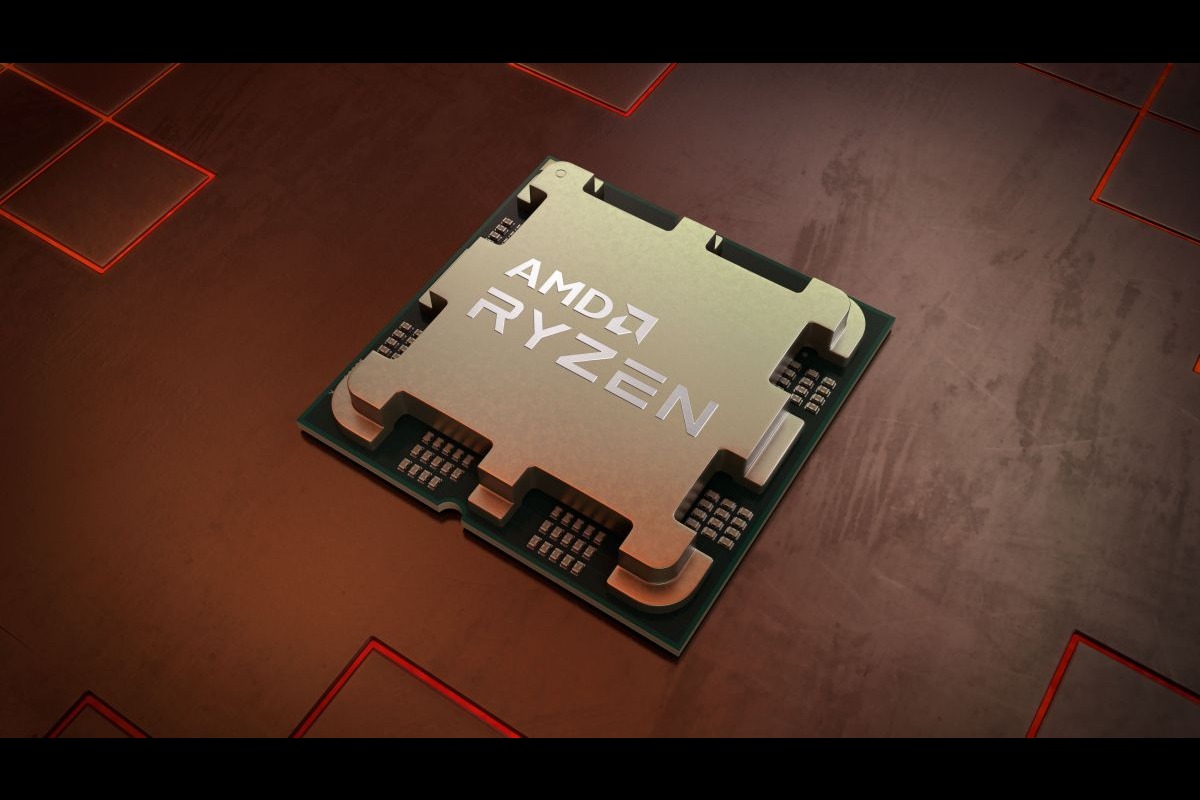Gigabyte, a computer hardware manufacturer that produces motherboards, graphics cards, and other computer peripherals has made a press release announcing the launch of upcoming AMD Ryzen Desktop CPUs, which are expected to provide enhanced performance and features compared to its predecessors.
This is good news for professionals and computer enthusiasts who require high computing power for their work or gaming. Computer manufacturers that use AMD Ryzen processors in their products can also benefit from the new CPU generation.
Moreover, Gigabyte has also introduced new entry-level servers powered by AMD Ryzen 7000 CPUs, which feature the AM5 socket and support both 105W and 170W TDP CPUs for various computing workloads like edge computing and general-purpose computing.
Despite being designed for the Zen 4 generation of processors with the AM5 socket and TDPs of 105W and 170W, Gigabyte has assured that its 1U servers can seamlessly support the upcoming generation of CPUs, indicating that the AM5 platform is here to stay. This further suggests that the AMD Ryzen 7000 CPUs will likely be based on the same AM5 socket as the Zen 4 generation, as they are expected to work seamlessly on entry-level servers.
AMD plans to support this platform until at least 2025, implying that they will release multiple generations of compatible processors.
The announcement by Gigabyte confirms that the next-gen AMD Ryzen desktop processors, expected to launch later this year, will be compatible with the AM5 platform. This indicates AMD’s commitment to long-term stability and compatibility, which is good news for customers prioritizing upgradability and reliability.
Customers who buy entry-level servers now will have the option to upgrade to the Ryzen 7000 successor. Additionally, Gigabyte’s announcement states that AMD will support the AM5 platform until 2025, at the very least.
This indicates that AMD plans to release several processor generations working with this socket. Additionally, Gigabyte has confirmed that their server solution will support the next generation of Ryzen Desktop CPUs. It will succeed the Ryzen 7000 family and be based on the Zen 4 core architecture.
This suggests that AMD and Gigabyte are committed to providing their customers with a reliable and expandable platform, highlighting their dedication to continued innovation and customer satisfaction.
The details of the upcoming Ryzen Desktop CPU lineup mentioned in the Gigabyte press release are currently unknown. It is not clear if the new CPUs will be a refreshed version of the existing Ryzen 7000 Desktop CPUs based on the Zen 4 architecture or if they will be the new Zen 5 Ryzen 8000 CPU line, codenamed Granite Ridge, which is expected to be released later this year. Since the Ryzen 7000 Desktop CPU lineup was launched in Q3 2022, it is reasonable to assume that a new family of Ryzen processors will be released by the end of this year.
However, with official information from AMD, knowing what the new lineup will entail is challenging. It is clear that AMD is continuing to develop and improve its processor offerings, which is necessary for a highly competitive industry. Customers considering upgrading their computing systems should monitor the latest developments and reviews of the new CPUs to decide what will best suit their needs.
According to available information, AMD’s upcoming Ryzen 8000 Desktop CPU family, codenamed Granite Ridge, is expected to be based on the Zen 5 core architecture manufactured with the 4nm node technology. The new processor lineup will introduce significant architectural improvements, enhancing performance and energy efficiency.
The Zen 5 CPUs will feature a re-pipelined front end, broader issue capabilities, and built-in AI and Machine Learning optimizations. These features will likely result in better performance and increased user energy efficiency.
Although AMD has stated that the Zen 5 core architecture won’t be released until 2024, there’s a possibility that the desktop release has been expedited. Otherwise, Gigabyte’s announcement may refer to an unannounced Ryzen Desktop family.
Regardless, AMD’s continued innovation in response to the market’s demands is apparent, and customers can expect increasingly powerful and efficient CPUs that cater to their needs.


